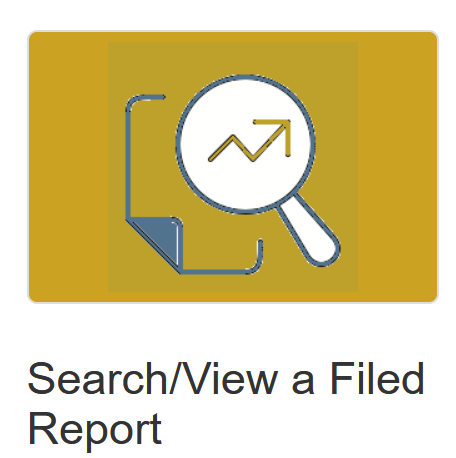City of Bastrop Edition
Candidates are legally required to file financial disclosure forms. Why? Primarily so you know where a candidate is getting their money.
May 3 contested candidates were required to file 30-day and 8-day prior reports by April 3 and April 25 respectively. Let’s take a look at who filed or failed to file and what the reports tell us.
- City Council Place 1, Perry Lowe: 8-day, 30 day
- City Council Place 1, Cecilia Serna: Modified reporting
- City Council Place 5, John Kirkland: 8-day, 30 day
- City Council Place 5, Cheryl Lee: 8-day, 30 day
- Mayor, Willie DeLaRose: 30 day, did not file 8-day
- Mayor, Ishmael Harris: 8-day, 30 day
- Mayor, Ward Northcutt, 8-day, 30 day
If you’ve not spent a lot of time looking at these reports or reading on Texas Ethics what candidates must report, they may be confusing. So, I’ll break them down with what I see that should concern City of Bastrop voters: who is getting money from developers.
First, it’s the law that candidates with opponents file reports on time (Sec. 254.037. FILING DEADLINE). While local election reports aren’t filed with Texas Ethics, Texas Ethics rules apply to all filings. Texas Ethics provides a synopsis of what local candidates must file and when. Even after an election, win or lose, candidates with money in their accounts must file reports by Jan 15 and July 15 annually.
Let’s look at issues revealed by these reports.
city council place 5
- Cheryl Lee donations reported in her 30-day report are short $300. Whether she failed to list a donation or added wrong is impossible to tell.
- John Kirkland accepted a $250 donation from the Home Builders Association of Greater Austin-HOMEPAC.
- John Kirkland accepted $500 from a relative of the developer that just received $600,000 of City taxpayer money in the form of a grant1. The address listed for that person is the business address of the developer.
- At a City Council meeting, when asked to acknowledge if any Council members had received donations from this developer, Kirkland and Plunkett sat silent even though they had.
- Kevin Plunkett accepted four $500 contributions from this same developer under four different names: Duhrman Bassett Realty Group LLC, BCSC LLC, BRP East LP, Bastrop Retail Partners LP.
- Texas law prohibits corporations and labor organizations from making political contributions to candidates. The prohibition also applies to other organizations, such as partnerships and limited liability companies (LLC), if they are owned by a corporation or include an incorporated member or partner.4
- Plunkett has not filed the legally required reports since 20232 violating Texas Ethics rules.
- John Kirkland recently accepted $3916.37 from Councilman Plunkett’s campaign account1.
- Plunkett originally accepted those developer contributions. He then donated the funds to Kirkland, who also accepted a contribution from this developer.
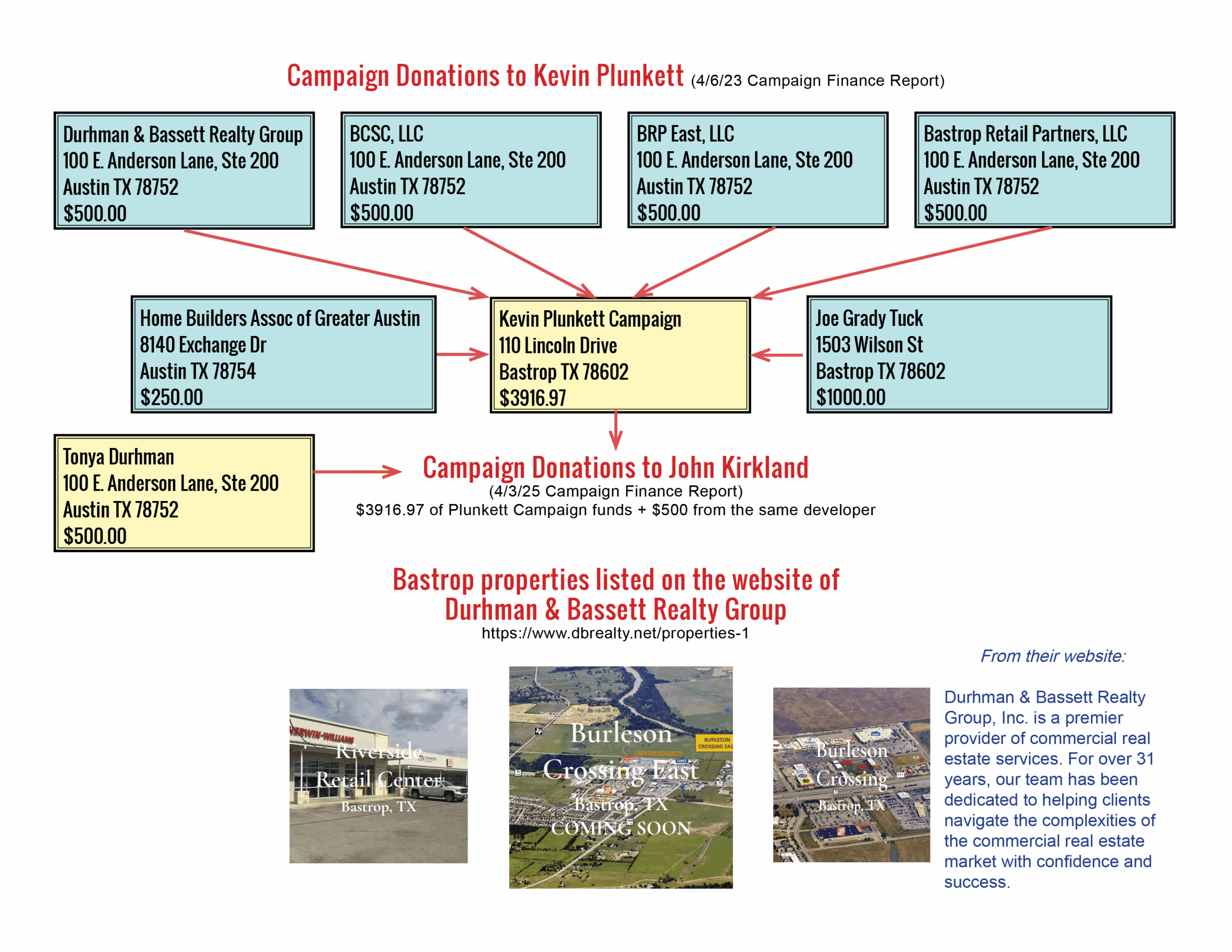
city council place 1
- Perry Lowe’s donations of note: Robert Trevino (City Manager’s husband $65); Joe Grady Tuck ($250); Home Builders Assoc-HOMEPAC ($250); Texas Realtor’s PAC-TREPAC ($2,000 pledged)
- Cecilia Serna: Serna chose modified reporting, meaning she would not raise or expend over $1100.
mayoral candidates
- Ward Northcutt identified all donors and expenses properly in both his 30-day and 8-day reports.
- Willie DeLaRosa did not file an 8-day report. That’s a violation of Texas Ethics.
- Ishmael Harris (30-day report) claims $1640 in itemized contributions, but the reported amounts don’t add up. The reported donor amounts add up to $1510. Included in that $1510 is a $200 contribution from “anonymous”. Anonymous donations are illegal5. Also listed are several names with no donation amounts.
- Ishmael Harris also took money from the City Manager’s husband, Robert Trevino ($65).
- Ishmael Harris has signs all over town, yet none of his reports show an expense for signs. Who paid for them? Each of the other mayoral candidates spent close to $1,000 for signs, just to put this in perspective.
april 30 updates
- Perry Lowe missing donation: According to their 8-day prior Texas Ethics filing, Mel Cooper’s BCC GPAC donated $500 to Perry Lowe’s campaign. It does not show in Lowe’s 30-day prior or 8-day prior campaign finance reports.
- Cecilia Serna 8-day report: Once a candidate exceeds the $1100 of modified reporting, that candidate is required to file reports. Cecilia Serna filed an 8-day prior report on time after having exceeded the $1100 modified reporting limit.
summary
 Ask yourself how a candidate will manage taxpayer money if they can’t properly manage campaign funding. Ask yourself who will get their ear and vote if they’ve taken money from developers and development-related PACs (Political Action Committees).
Ask yourself how a candidate will manage taxpayer money if they can’t properly manage campaign funding. Ask yourself who will get their ear and vote if they’ve taken money from developers and development-related PACs (Political Action Committees).
Candidates John Kirkland and Perry Lowe have taken significant funds from the development community. Willie DeLaRosa hasn’t filed the legally required reports. Ishmael Harris hasn’t reported all his campaign income and expenses as legally required.
The only candidates to properly fill out these reports were Ward Northcutt who is running for mayor and Cecilia Serna running for City Council, Place 1. Cheryl Lee had a minor error in one report, but shows no donations from developers.
These public documents are for your benefit. They are required so you know where a candidate is getting their money and how they are spending it. Know before you go.
1 https://www.cityofbastrop.org/upload/page/0601/Election_2025/John%20Kirkland/Kirkland_30th%20Day%20Finance_Redacted.pdf
2 https://www.cityofbastrop.org/page/cs.candidate_officeholder_documents
3 https://www.cityofbastrop.org/page/cs.election_may2025_SPECIAL
4 https://www.ethics.state.tx.us/data/resources/guides/Gpolfund.pdf
5 https://www.ethics.state.tx.us/data/resources/guides/Gpolfund.pdf
 Later in the morning, after taking a much needed break, we drove across the bridge.
Later in the morning, after taking a much needed break, we drove across the bridge.  There was a huge campaign sign and multiple people in the breakdown lane and probably 15+ sitting on the barrier swinging their legs on the traffic side. Very, very dangerous. Had anyone slipped, they’d have fallen into traffic. Had those been our folks, I would have immediately told them they needed to be out of the road and behind the barrier. But they weren’t. So, yes, I admit it, I called the police to ensure everyone’s safety. The police arrived and politely asked everyone to be behind the barrier and safety returned.
There was a huge campaign sign and multiple people in the breakdown lane and probably 15+ sitting on the barrier swinging their legs on the traffic side. Very, very dangerous. Had anyone slipped, they’d have fallen into traffic. Had those been our folks, I would have immediately told them they needed to be out of the road and behind the barrier. But they weren’t. So, yes, I admit it, I called the police to ensure everyone’s safety. The police arrived and politely asked everyone to be behind the barrier and safety returned. But, apparently, someone wants to stir the pot. Someone has started rumors that there was some altercation between the Dems and the Republicans. Fake news. Just not true.
But, apparently, someone wants to stir the pot. Someone has started rumors that there was some altercation between the Dems and the Republicans. Fake news. Just not true. 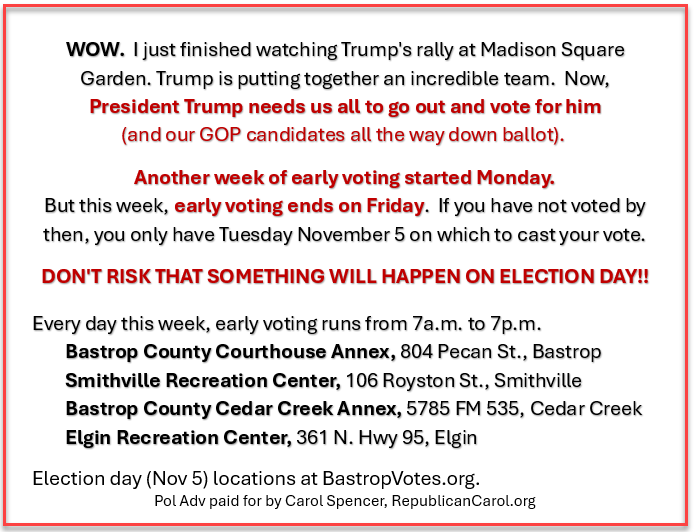
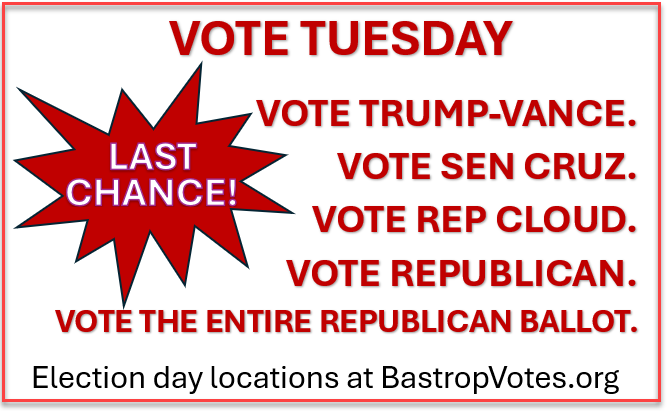
 Why do some of them use photos with famous elected officials? To make you think that person supports their candidacy. But do they? This is Monica Crowley and me a few years ago at a GOP event. Having a photo with her didn’t mean she endorsed my candidacy.
Why do some of them use photos with famous elected officials? To make you think that person supports their candidacy. But do they? This is Monica Crowley and me a few years ago at a GOP event. Having a photo with her didn’t mean she endorsed my candidacy. 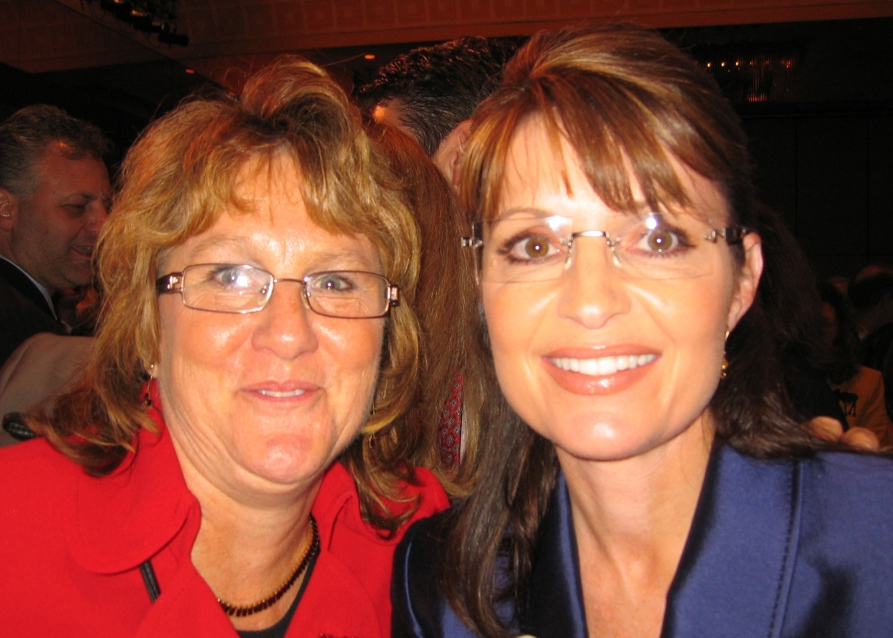 The same is true of photos with Kellyanne Conway, Rudy Guiliani, Sarah Palin, Ken Paxton, Sid Miller, Governor Abbott and so many others with whom I’ve been photographed over the years. Photos with famous politicos, unless accompanied by the words “Endorsed by [name of person in photo]”, should be interpreted as manipulative, meant to make the candidate look important or to make the reader think that person has endorsed the candidate.
The same is true of photos with Kellyanne Conway, Rudy Guiliani, Sarah Palin, Ken Paxton, Sid Miller, Governor Abbott and so many others with whom I’ve been photographed over the years. Photos with famous politicos, unless accompanied by the words “Endorsed by [name of person in photo]”, should be interpreted as manipulative, meant to make the candidate look important or to make the reader think that person has endorsed the candidate. But, voter beware. Just because they say they’re conservative, they aren’t. They easily toss around the word “conservative” knowing that low-information voters are swayed by it. So, become a high-information voter using online resources!
But, voter beware. Just because they say they’re conservative, they aren’t. They easily toss around the word “conservative” knowing that low-information voters are swayed by it. So, become a high-information voter using online resources! 